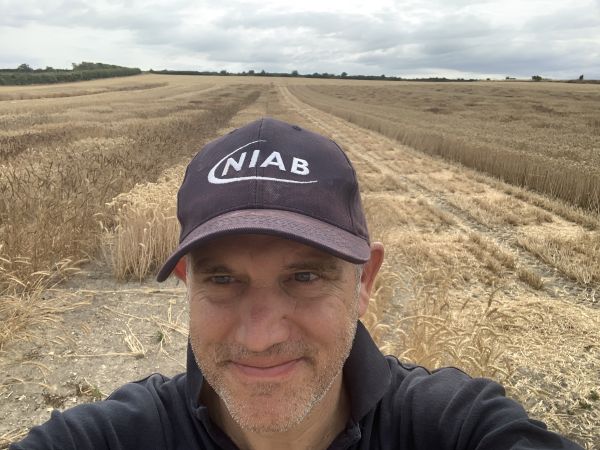Trait genetics
Our research group applies plant molecular genetics, quantitative genetics, genomics, plant phenotyping and physiology approaches to study the genetic control of yield, yield components, disease resistance, and quality traits in cereal crops, as well as traits used during varietal registration. We are also interested in developing underpinning germplasm (for example multi-parent experimental populations), bioinformatic and genetic analysis tools to support these processes. In addition, we also aim to enable crop R&D and promote the exploitation of research outputs by industry. Via our interactions between academia and industry, we ultimately aim to help deliver advances in crop genetics into existing pre-breeding and breeding pipelines for the development of improved crop varieties.
Follow this link to view this group on the NIAB website https://www.niab.com/about/people/dr-james-cockram
Research areas
Facing Forwards: understanding epidermal development in cereals
The epidermal surfaces of cereal crops mediate important processes essential to optimised crop performance, including gas exchange and water loss. In a Biotechnology and Biological Sciences Research Council (BBSRC) ‘Responsive Mode’ project involving James Hutton Institute (lead), Dundee University and NIAB, this project will investigate the genes and genetic networks controlling epidermal cell patterning in both wheat and barley. For more information see: GtR (ukri.org)
Ensembl Plant Populations
In a BBSRC ‘Biotechnology and Biological resources project’ project involving EBI-EMBL (lead) and NIAB, for seven key plant species selected for their high user engagement at the Ensembl Plants portal (Arabidopsis, brassica, barley, oat, rice, tomato and wheat), we will establish a web-tool containing existing population-based sequence and variant data, allowing users to easily run statistically sound genetic analyses using key plant populations. The Ensembl Plant populations tool will provide users with an integrated pipeline to undertake genetic analyses from start to finish, including: (i) upfront investigation of the predicted power of the selected population to detect genetic loci, (ii) inclusion of pre-prepared statistics to support users e.g. to account for varying levels of relatedness between genotypes, (iii) interactive genome-wide view of the results allowing users to move to identified genomic locations of interest in Ensembl Plants, (iv) presentation of useful information linked to genes and variants within those identified regions to help users identify candidate genes for further study.
APR_UK: exploting pan-genomics to deliver improved adult plant yellow rust resistance to UK wheat
Yellow rust is one of the most important diseases affecting wheat production in the UK and worldwide. In this BBSRC ‘Follow-on-Fund’ project, we will take a new source of ‘adult plant resistance’ (APR) previously identified in one of our wheat multi-founder populations, we will undertake R&D to help make this source of resistance more readily usable in breeding programmes. To this end, we will exploit our wheat pangenome resources to develop improved genetic markers and provide resources to help integrate the resistance locus into breeding programmes.
About the group leader
James is a Group Leader in Trait Genetics based in the Plant Genetics Department at the Crop Science Centre. After completing an MSc in Conservation and Utilisation of Plant Genetics Resources at Birmingham University and a PhD and post-doctoral position at the John Innes Centre on cereal genetics, James has worked as a Group Leader since 2013. His research focuses on delivering genetic improvements for improved crop production and food security in current and future agricultural environments. He serves as an Editor for the journals Theoretical and Applied Genetics and Plant Genetic Resources.
Led by

James Cockram
Head of Crop Trait Genetics
Research group staff

Tally Wright
Head of the Quantitative Genetics group














